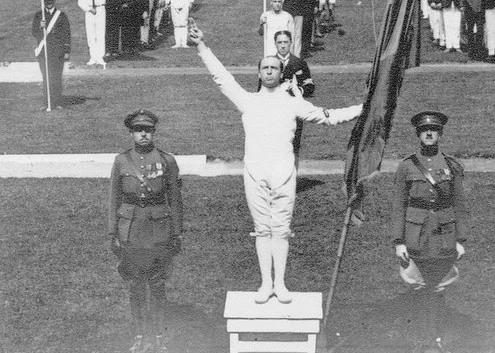At the heart of every Olympic ceremony stands the flag bearer, a figure of national pride and a beacon of the Olympic values. The role dates back to the 1908 London Olympics and has since become one of the highest honors an athlete can receive. It’s not just a prestigious moment; it’s a loaded one.
READ MORE
++ Isaquias Queiroz and Raquel Kochhann to carry the flag for Brazil at Paris 2024
++ Paris 2024 will have referees of both sexes in every match: Who will be at Brazil’s debut?
++ Paris 2024: Brazil’s full schedule at the Olympic Games
Victor Boin, a Belgian athlete, was the first to carry this responsibility at the 1920 Antwerp Games. His role extended beyond mere participation; he was the first to recite the Olympic oath, symbolizing a commitment to fairness and integrity. Boin’s multifaceted career—spanning sports and military service—underscored the ideal Olympic persona: versatile, virtuous, and venerable.
Trivia 4: Victor Boin, the Belgian athelete who has won Olympic medals in both Fencing and Water Polo, was the first person to take the Olympics Oath in 1920 in Antwerp. (8/n) pic.twitter.com/O5TuU8NHhN
— Spandan Roy (@talksports45) July 21, 2024
Although it might seem like a mere ceremonial role, it represents unity, peace, and the spirit of competition that the Olympics aim to foster worldwide.
Nations vary in their approach—some democratically elect their flag bearer through athlete votes, others are selected by high-ranking sports officials.
The position is a moment of immense pride but carries with it a silent pressure. These athletes symbolize more than their individual achievements; they represent their country’s cultural and political narratives, a burden that can weigh heavily on their shoulders.



